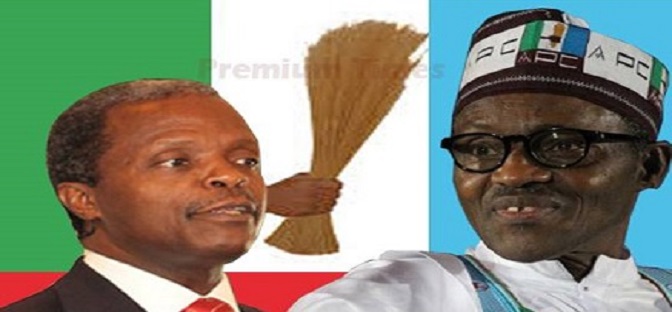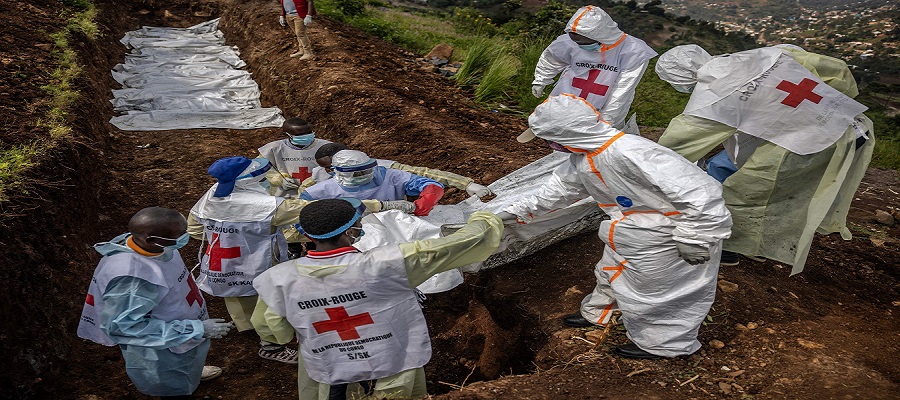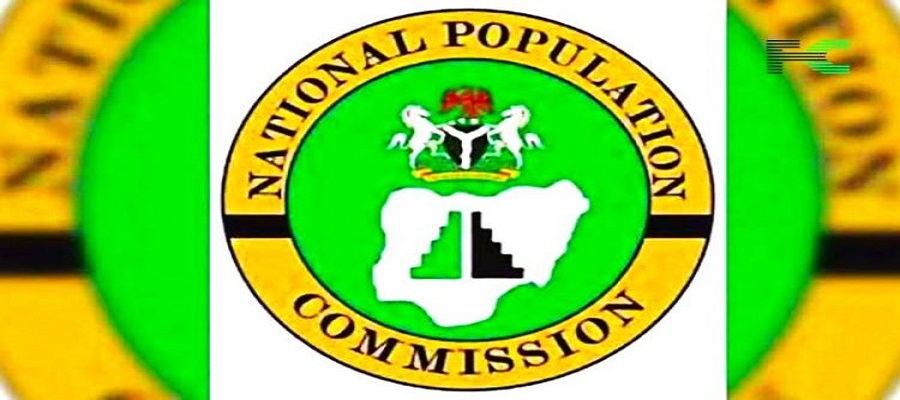News
Foreign Portfolio Investors Withdraw N1.87tn under Buhari

Foreign portfolio investors(FPIs) have withdrawn a total of N1.87tn in four years, starting from June 2015, after President Muhammadu Buhari was sworn into office, according to the Punch.
The latest data obtained from the Nigerian Stock Exchange (NSE) showed that the investors withdrew N163.77bn after his re-election in February.
Analysts at the United Capital Plc have described the delayed policy formulation and cabinet formation by President Muhammadu Buhari as a risk to capital inflow to the country.
They noted that in the absence of profound changes in the policy environment, only the FPIs in search of cheap naira assets would dominate capital importation into the county, while Foreign Direct Investments would remain on the sidelines.
An analysis of data obtained at the NSE revealed that the year 2018, the preceding year to the general elections, saw the highest withdrawals of the FPIs in four years, as they withdrew N642.65bn.
Mr Peter Ashade, group chief executive officer, United Capital, said the lack of economic policy reforms would continue to scare the FPIs off equities while policy stability and a double-digit interest rate would promote a further appetite for fixed income instruments.
Data from the National Bureau of Statistics revealed that the FPI flows continued to account for the bulk of capital imported into Nigeria.
In the first quarter of 2019, the amount surged by 56.5 per cent year-on-year to $7.1bn, despite the jitters that trailed the February general elections and the eventual conduct in the Q1.
Total capital imported into the country surged by 34.6 per cent year-on-year to settle at $8.5bn, the highest since the third quarter in 2013.
This revealed that across the three components of capital imported, the FPIs accounted for the bulk of expansion observed.
According to him, weaker capital inflows reflect the impact of waning confidence in the Nigerian economy by foreign investors amid concerns about macroeconomic fundamentals of the Nigerian economy.
Analysts at United Capital said, barring any external shocks, they expected the naira to stabilise this second half of the year.
They said the stability would be buoyed by a sustained foreign exchange intervention and continued FPI inflows.
However, they expressed concerns, saying the “uninteresting macroeconomic environment is scaring the FPIs.”
The report read in part, “However, in Nigeria, we believe the lack of economic policy reforms will continue to scare the FPIs off equities while policy stability and a double-digit interest rate will promote a further appetite for fixed income instruments.
“Clearly, to boost the FPIs appetite for equities, uncertainties must be out of the way and the Central Bank of Nigeria must reduce the attractiveness of risk-free securities as monetary policy in the global economy becomes easier.”
In the second half of 2015, which was the first six months of President Buhari’s tenure, the FPIs withdrew N277.63bn, the highest being in July, when they withdrew N58.83bn.
In 2016, the FPIs withdrew N261.03bn; N435.31bn in 2017 and N642.65bn in 2018.
In the first half of 2019, the foreign investors withdrew N257.81bn, bringing the total withdrawals under the President Buhari regime to N1.87tn.
Alice Tomdio, associate Ddrector, Capital Markets, PwC Nigeria, in an interview with The Punch recently, said, “Once there is any cause to fear, portfolio investors sell out their shares and they come back when the environment is better; all of these create a lot of volatility in the market and may be one of the reasons we do not have a lot of initial public offerings in the country.”
Between 2011 and 2015, foreign transactions consistently outperformed domestic transactions. However, domestic transactions marginally outperformed foreign transactions in 2016 and 2017, accounting for 52 per cent of the total transaction value in 2017.
Also, foreign transactions, which stood at N1.5tn in 2014, declined to N518bn in 2016 but increased significantly by 133 per cent to N1.2tn in 2017. This accounted for about 48 per cent of total transactions in 2017.
Over an 11-year period, domestic transactions decreased by 62.46 per cent from N3.5tn in 2007 to N1.3tn in 2017, meaning foreign investors were dominating the market.
However, there was a significant increase in domestic transactions between 2016 and 2017 by 111 per cent from N634bn to N1.3tn.
Alice Tomdio, president, Independent Shareholders Association of Nigeria, said the economic policies of the country were responsible for the exit of foreign investors.
He noted that when the policies were favourable, investors would come around and if otherwise, they would flee.
Nwosu, who spoke with our correspondent, said it was not advisable for the FPIs to stay ahead of the general elections because there was no assurance given to them when the polls were approaching.
He said, “The FPIs are very careful about their money; these investors have been in this country and have enjoyed a lot. They are not willing to gamble with their money.
“When the situation in Nigeria is showing imminent doom, they will all go away and wait until things stabilise. They will want to make sure that the economic situation does not affect their investment, whereby they will lose money.”
Mr Afolabi Olowookere, head, Economic Research and Policy Management, Securities and Exchange Commission, (SEC) said foreign investors understood the country and could read it well, knowing when to leave and when to stay.
He stated that there were fundamental issues in the economy that needed to be addressed not only to attract but to keep foreign investors.
Olowookere said, “We have some investors that were waiting for the President to appoint his cabinet, while some others do more serious analysis on the interest rates in the country, economic performance, efficiency and liquidity of the market and exchange rate.
“Investors will be interested in what will happen to the exchange rate and how many companies are listed on the Nigerian Stock Exchange. Foreign investors are responsible for over 50 per cent of the transactions on the stock exchange, whether their investments are increasing or reducing.”
He said to attract and retain the FPIs, infrastructure and foreign exchange issues must be addressed.
According to him, looking at the road map of the Central Bank of Nigeria, it can be observed that the apex bank is trying to stabilise the macroeconomic environment, as everybody wants inflation to come down so that interest rate can drop.
Olowookere said, “Investors want to know how much the government is borrowing and the level of debt sustainability. They want to know how much it will weigh in on the country’s capacity to generate revenue.
“They are also interested in the level of liquidity of the market; fortunately, we had two main listings recently, which pushed the market capitalisation from about N10tn to N14tn.
“These companies can also compete with Dangote and the likes; that is if the holders are willing to transact. But investors will always come and go. It’s not just about them bringing in money; it is also about what they can buy with it.”
News
Mysterious Illness Kills 50 People within Hours of Symptoms, Doctors Raise Alarm

A mysterious illness killed more than 50 people in the Democratic Republic of Congo (DRC), with most victims dying within 48 hours of showing symptoms, health officials have reported.

Pic Credit: Daily Sabah
The outbreak, first reported on January 21, has resulted in 419 cases and 53 deaths.
The World Health Organization (WHO) has classified it as a significant public health threat, citing concerns over its rapid progression and fatality rate.
Suspected origin and early cases
Authorities believe the outbreak started in the town of Boloko, where three children reportedly ate a dead bat.
The children developed severe symptoms and died within two days.
Medical experts suspect the illness is a form of hemorrhagic fever, which can cause fever, internal bleeding, headaches, and joint pain.
“That’s what’s really worrying,” said Serge Ngalebato, medical director of Bikoro Hospital in the DRC, referring to the disease’s speed and severity.
Ebola, one of the most well-known hemorrhagic fevers, has not been detected in this outbreak, according to initial testing.
A second wave of cases emerged in the town of Bomate on Feb. 9. Authorities have tested samples from 13 patients, all of which returned negative results for Ebola and Marburg virus.
However, some samples tested positive for malaria.
The WHO reported that the fatality rate of the illness is 12.3%, significantly higher than the early fatality rate of COVID-19.
Experts warn that the outbreak could spread further due to the region’s remote location and fragile healthcare system.
News
NPC Warns Nigerians to Beware of Fake Recruitment Website

National Population Commission (NPC), has alerted the public to a fraudulent website https://npc-career.allprogram.site/job created by individuals with malicious intent.

Erelu Taibat Yemi Oloruntoba, director, Public Affairs, NPC, said in a statement that the fake site falsely claims to facilitate recruitment for the 2025 Population and Housing Census, aiming to defraud unsuspecting citizens.
“We want to state unequivocally that the Commission is not currently conducting any recruitment for Ad-hoc staff related to the upcoming census. President Bola Ahmed Tinubu, GCFR, has stated that a committee will be established to align the census budget with the government’s present financial situation before issuing a proclamation for the conduct of the upcoming biometric Population and Housing Census,” the statement outlined.
It, therefore, warned Nigerians to be aware that when there is a date for the census and it becomes necessary for the commission to recruit ad hoc staff for the exercise, it will be officially announced through national media outlets, as well as the NPC’s verified social media platforms and website.
It urged the general public to disregard the fake website and its misleading information to avoid falling victim to scams.
The statement avowed that NPC is actively investigating the creators of this fake website, adding, “we encourage everyone to seek accurate information regarding the NPC’s activities from our official social media handles and website.”
According to the statement, NPC is committed to keeping the public informed about developments concerning the first biometric Population and Housing Census in Nigeria.
“We appreciate your support in ensuring a successful census exercise,” the statement said.
News
Fuel Scarcity Looms as Marketers Threaten Strike over N100Bn Debt

Independent Petroleum Marketers Association of Nigeria (IPMAN) has issued a seven-day ultimatum to the Nigerian Midstream and Downstream Petroleum Regulatory Authority (NMDPRA) to pay outstanding bridging claims amounting to N100billion or face a nationwide strike.

In a communique released on Monday, the association expressed growing frustration with the NMDPRA’s failure to fulfill its financial commitments, despite repeated assurances.
The statement, signed by Yahaya Alhassan, chairman of the IPMAN Depot Chairmen Forum, highlighted that the NMDPRA had previously promised to resolve the debt but has consistently reneged on those promises.
According to the IPMAN communique, the NMDPRA had made a public commitment to pay the bridging claims within 40 days, following a stakeholders’ meeting where the Nigerian Association of Road Transport Owners (NARTO) demanded payment before halting a planned strike action.
The meeting, which involved high-ranking government officials such as Mal. Nuhu Ribadu, national security adviser, and Mr. Adeola Ajayi, DG DSS, was seen as an opportunity for resolution.
However, 40 days have since turned into several months without any sign of payment. IPMAN noted that this continued delay has severely impacted the operations of its members.
“One of those promises was made by the NMDPRA at the stakeholders meeting on the eve of the last strike action declared by NARTO. At that meeting, the NMDPRA assured us that the bridging claims would be paid within 40 days, but now months have passed, and there is still no hope of payment,” the statement read.
IPMAN also lamented the devastating economic consequences of the delayed payments, noting that many of its members have been forced to close their businesses, lay off staff, or, in some cases, suffer personal tragedies due to the financial burden.
“Many of our members have lost their businesses to commercial banks as they are unable to meet loan repayment obligations due to the unfulfilled payments of bridging claims,” the statement added.
In addition to the outstanding claims, IPMAN accused the NMDPRA of imposing “abnormal levies” on its members. One of the most contentious issues raised was a 5 per cent commission on petrol station sales, which IPMAN described as an illegitimate imposition.
“When has the NMDPRA turned itself into a real estate agent, collecting a commission on sales of retail petrol outlets?” the communique questioned.

 General News2 days ago
General News2 days agoSANEF Appoints Uche Uzoebo as New Chief Executive Officer

 E-Financial2 days ago
E-Financial2 days agoFlutterwave Visits Tinubu, Seeks Support to List on NGX

 General News2 days ago
General News2 days agoAgain, Gambaryan, Binance Executive Accuses 3 Lawmakers, NSA of Demanding $150m Bribe

 Telecom2 days ago
Telecom2 days agoGlobacom Continues Upgrade of Network Infrastructure Across Nigeria

 Telecom2 days ago
Telecom2 days agoATCON Warns of Nationwide Telecom Blackout over Diesel Shortage

 News2 days ago
News2 days agoNITDA Inaugurates Technical Working Group to Drive Nigeria’s Digital Sovereignty

 E-Financial2 days ago
E-Financial2 days agoSERAP Drags CBN to Court over ATM Fee Hike

 News2 days ago
News2 days agoNigeria to Witness First Lunar Crescent on 28 February – NASRDA

























